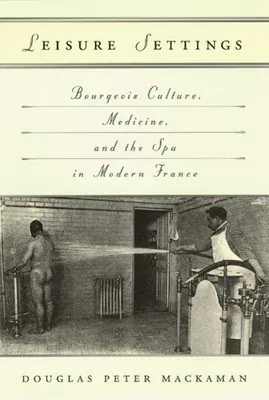Douglas P Mackaman
(Author)Leisure Settings: Bourgeois Culture, Medicine, and the Spa in Modern FranceHardcover, 1 December 1998

Qty
1
Turbo
Ships in 2 - 3 days
In Stock
Free Delivery
Cash on Delivery
15 Days
Free Returns
Secure Checkout

Print Length
227 pages
Language
English
Publisher
University of Chicago Press
Date Published
1 Dec 1998
ISBN-10
0226500748
ISBN-13
9780226500744
Description
Product Details
Author:
Book Format:
Hardcover
Country of Origin:
US
Date Published:
1 December 1998
Dimensions:
23.72 x
15.88 x
1.88 cm
ISBN-10:
0226500748
ISBN-13:
9780226500744
Language:
English
Location:
Chicago, IL
Pages:
227
Publisher:
Weight:
435.45 gm